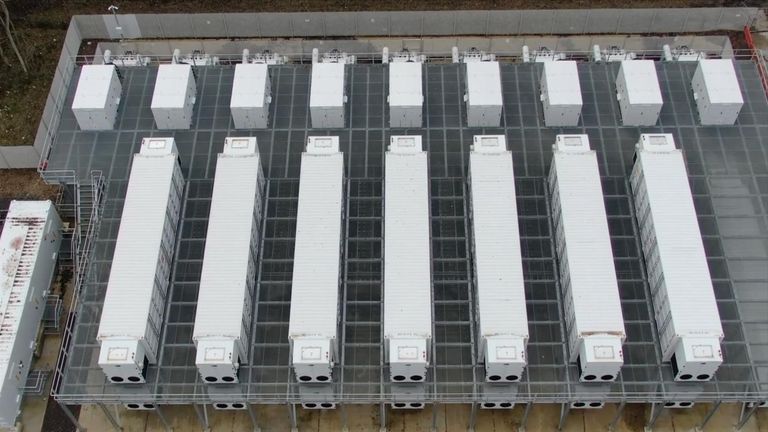With the flick of a switch, fuel poverty has become a mainstream economic condition.
Defined as spending 10% or more of disposable income on energy, confirmation that typical annual bills will rise from just under £2,000 to more than £3,500 means it will now apply to around half of households in England, Scotland, and Wales.
The poorest will be hit hardest, but the energy crisis, fuelled by Vladimir Putin and quantified by Ofgem, is about to take the cost of living squeeze into new territory.
Bills set to soar after price cap announcement – live updates
From 1 October, when the first increased bills land, this will no longer be solely an issue for the invisible and the impoverished, those people, parents, and pensioners already familiar with the longest warm bus routes, and the cafes most tolerant of sharing heat for the price of a cup of tea.
For millions of middle-income households in Middle Britain, energy anxiety will be a new and unavoidable reality. Even those who’ve done the right thing, who’ve re-lagged the pipes, fitted a smart meter and boil water by the cup, are unlikely to escape.
On every measure the price increase is massive, the scale matched only by the speed with which it has choked household budgets.
The new cap means prices have trebled in a year and are likely to multiply again to more than £4,000 in the new year. On those forecasts, consumers could end up paying more for energy in the first quarter of 2023 than they did in all of 2021.
Monthly energy payments of £300 or more are equivalent to a new car, or a multiple percentage point interest hike on the mortgage (which may be along soon too).
Holidays will be jettisoned, nights out postponed, school trips cancelled and wardrobes extended. For many, the unremarkable fruits of hard work will become luxuries, or even out of reach.
None of these sacrifices are comparable to the invidious choice between heating and eating facing thousands more households, but the profound social inequality is not the only thing the energy crisis has exposed.
The scale of the crisis demands a response, but with government decision-making on hold until a new prime minister is confirmed next month consumers are left in the dark, even if they can afford to turn the lights on.
So far this year the state response, led by former chancellor Rishi Sunak, has been ad hoc and reactive, struggling to get ahead of events.
An initial plan for a £200 loan plus council tax relief morphed into a universal £400 grant, a figure based on an Ofgem prediction of the autumn price cap, produced at the chancellor’s request, just as Sue Gray’s Downing Street Partygate report was published, that proved £700 short.
Ofgem’s intervention was more effective as a political distraction than a guide for policy or prices, but that £400 may yet buy the new prime minister time to develop a policy fit for the moment.
Read more:
Energy price cap set to rise – here’s everything you need to know about your higher bills
Parents using junk food to make up for not being able to afford holidays and days out
Asda joins supermarket dash to ditch ‘best before’ dates on fresh produce to cut waste
The energy industry favours freezing prices at current levels for two years at a cost of £100bn, funded by government-backed loans in a sum that bill payers or taxpayers will repay over decades.
There are other options, none of them cheap. VAT and green levies will likely be cut, but they will reduce bills by less than 10%, and any major intervention to defer the steepling cost of wholesale gas will be measured in the tens of billions.
A bail-out for consumers, whether universal or more targeted and therefore cheaper, is the only short-term option for ministers, but the structural weaknesses in domestic and global energy systems will take many more winters to address.
The UK may not directly rely on Russian gas, but there is no escaping the soaring cost on international markets driven in large part by the invasion of Ukraine.
With reduced supply from France’s ageing fleet of nuclear reactors, Germany and others racing to increase stockpiles, and competition for LNG supply from across the world, strong prices are likely to remain high for months.
This week more than half of Britain’s electricity was produced from natural gas, with renewables providing less than 15%. The need to accelerate the development of cheaper, sovereign renewable sources of energy has never been clearer, despite perverse protests at green levies that account for less than 10% of bills.
The UK also needs to stop wasting what energy it has. The UK’s housing stock is a national embarrassment, with seven million homes lacking basic loft insulation and eight million without cavity wall insulation.
Yet despite millions of homes effectively burning money, there has been no call for consumers, businesses, or public services to reduce demand.
While European nations switch off the lights on public buildings and plan for a winter of soaring prices and potentially short supply, politicians and energy providers have no clear plan and are nervous to even suggest we put on a jumper.
Bills that chill the blood may make that choice at least an easy one this winter.








